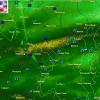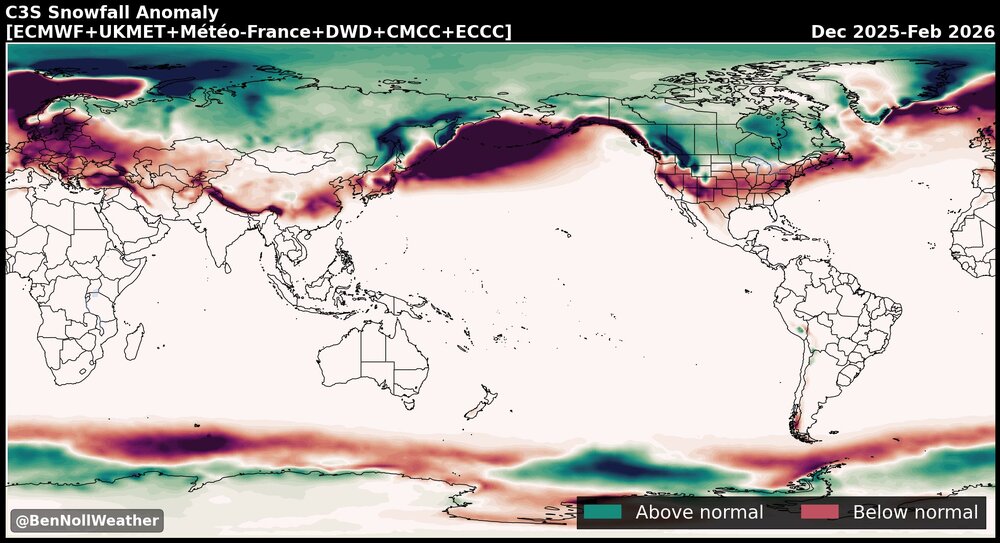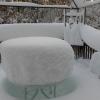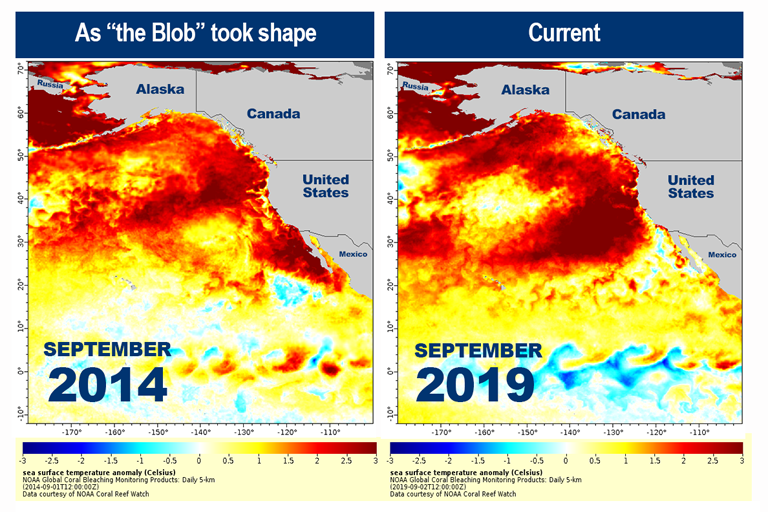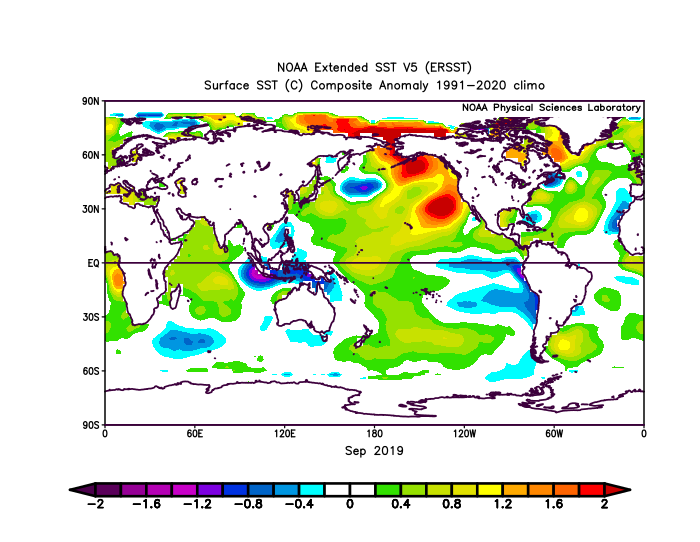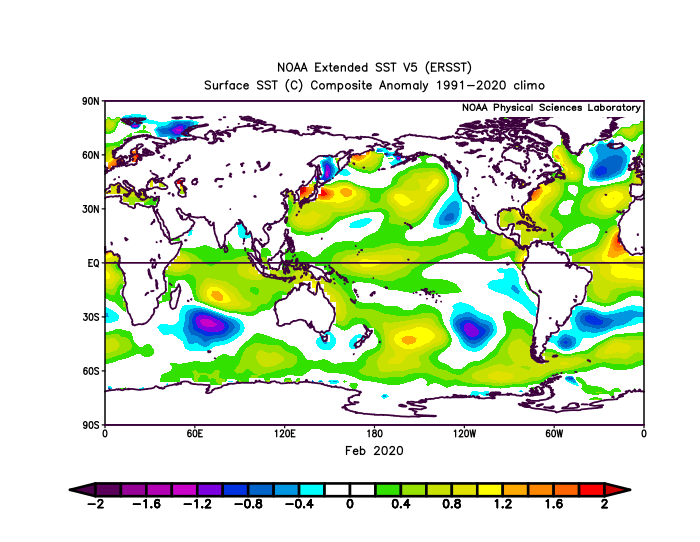All Activity
- Past hour
-
this is a nicer looking forecast than 2024-25 this time last year.
-
September 2025 OBS-Discussion centered NYC subforum
SACRUS replied to wdrag's topic in New York City Metro
82 / 58 a bit more clouds now then earlier this morning -
Someone tempting fate around here burning.
-
Just let the rain hold off until after 4pm on Tuesday.
-
What?? A bright ball of fire in the sky LOL. Yes the sun made it's appearance. Nice day. Biker club just went by my place. Loud ass Harleys
-
Euro AI been locked in with it. Also pretty steady with a rainy pattern after that coastal. 4” for DC next 2 weeks on the 12z run.
-

Occasional Thoughts on Climate Change
donsutherland1 replied to donsutherland1's topic in Climate Change
I've seen figures of about 75% should all the ice melt. That's not going to happen anytime soon. Even in the Mid-Pliocene, some ice was retained. An Eocene-type scenario would be a different ballgame. Removing even a modest amount of water could disrupt the water cycle, reducing rock weathering (allowing even more CO2 to pile up in the atmosphere) and producing devastating to catastrophic ecosystem damage. Draining the water could also reduce the oceans' thermal inertia leading to faster warming at each level of CO2. Finally, humanity is already engaged in a colossal geoengineering experiment in which it is pumping CO2 into the atmosphere at an order of magnitude or more above the rapid rise in CO2 that sparked the Paleocene-Eocene Thermal Maximum. Given its reckless ongoing conduct in the face of now full knowledge of the consequences of its geoengineering initiative, my guess is that humanity would ignore potential risks in any new geoengineering effort, probably compounding the damage rather than mitigating it. After all, if they ignore the hazards of their current practices, why would any other geoengineering effort be different? -

2025 Atlantic Hurricane Season
Wannabehippie replied to BarryStantonGBP's topic in Tropical Headquarters
oof. This is not a pretty picture for something to develop.Zero convection with that wave that just came off the coast, and has SAL mixed in with it. -

September 2025 OBS-Discussion centered NYC subforum
Dark Star replied to wdrag's topic in New York City Metro
Not too bad, just finished weed whacking... -

September 2025 OBS-Discussion centered NYC subforum
Dark Star replied to wdrag's topic in New York City Metro
I could imagine the welcoming sign driving into El Azizia, "El Azizia - Home of the False Highest Temperature Never Recorded"... -
I read a study not too long ago that showed low clouds (I think it was low) were becoming less numerous because of warming. The warmer air/sea surface temps disrupt low cloud formation, leading to even more warming, leading to even more disruption, etc.
-
Good, because we need the rain. A nice, rainy day in the 70s is fine with me. Hope we can all get near an inch at least
-
Now one of the debaters has introduced that the net global cloud cover has been decreasing. This is the first time I have heard this. I just assumed the opposite, since warmer air holds more moisture?
-
Seems to be a growing likelihood of a midweek coastal low to bring most of our area at least some rain. Details are obviously still completely unresolved, but it's on a number of deterministic and ensemble systems.
-
Storm Number Storm Name Typea Datesb (UTC) Max. Winds (kt) Min. Pressure (mb) Accumulated Cyclone Energyc (x104 kt2) Direct Deathsd U.S. Damagee ($million) Tropical Cyclone Report Status 1 Alberto TS 19 Jun–20 Jun 45 992 0.8 2 125 Final 2 Beryl MH 28 Jun–09 Jul 145 932 34.5 35 7,200 Final 3 Chris TS 30 Jun–01 Jul 40 1005 0.1 5 0 Final 4 Debby HU 03 Aug–08 Aug 70 979 4.9 12 2,500 Final 5 Ernesto HU 12 Aug–20 Aug 85 967 14.4 3 0 Final 6 Francine HU 09 Sep–12 Sep 90 972 4.8 0 1,300 Final 7 Gordon TS 11 Sep–17 Sep 40 1004 1.3 0 0 Final 8 Eight PTC 15 Sep–17 Sep 50 1004 0.0 Final 9 Helene MH 24 Sep–27 Sep 120 939 7.0 176 78,700 Final 10 Isaac HU 25 Sep–30 Sep 90 963 7.9 0 0 Final 11 Joyce TS 27 Sep–30 Sep 45 1001 1.7 0 0 Final 12 Kirk MH 29 Sep–07 Oct 130 928 23.7 0 0 Final 13 Leslie HU 02 Oct–12 Oct 90 970 16.1 0 0 Final 14 Milton MH 05 Oct–10 Oct 155 895 22.5 15 34,300 Final 15 Nadine TS 19 Oct–20 Oct 50 1002 0.7 7 0 Final 16 Oscar HU 19 Oct–22 Oct 75 984 4.5 8 0 Final 17 Patty TS 01 Nov–04 Nov 55 982 2.3 0 0 Final 18 Rafael MH 04 Nov–10 Nov 105 954 12.3 2 0 Final 19 Sara TS 14 Nov–18 Nov 45 997 2.0 9 0 Final Yep, very active JJ, BN AS, very active ON.
-
it could be a cold and dry winter like last winter was.
-

Occasional Thoughts on Climate Change
LibertyBell replied to donsutherland1's topic in Climate Change
Don, geoengineering is going to have to take place on a massive scale. I see you mentioned the rising sea levels and what the result would be if all the polar ice caps and glaciers melted. The planet is 70% covered by water right now, how much more would be covered by water if all that ice turned liquid? To be honest, we have way too much more water on this planet than we need, at some point, the only way to save our coastal cities will be to transport some of that water to space colonies in orbit and on the Moon and Mars (and wherever else we might colonize where water will most definitely be needed.) How quickly would we be able to do this (perhaps developing new technology like space elevators). This is obviously something that will take many decades to develop, perhaps not until 2100 and beyond. - Today
-
I think maybe like last year we might have lucked out with the -PDO peaking too early. Its hard to sustain a -3 or 4 from July-August through an entire winter. Last year it basically bottomed out in October and then it was -1 during the winter. Could see the same thing happen again though I'd be wary of it not averaging slightly more negative than last winter.
-
Yeah. Stein at work means CoC can play
-
It didn’t work out for the 2019-2020 winter since the rest of the Pacific was so warm with the record IOD reversal which supercharged the SPV during the fall when it was so positive.
-

September 2025 OBS-Discussion centered NYC subforum
steve392 replied to wdrag's topic in New York City Metro
Was very humid feeling when i left for work at 6am. -
It is pretty hot in the sun today
-
The low volume is why it was so much easier to reach the North Pole this summer. Extent is only a one dimensional measurement of where the edge of the ice field is. But now there is so much open and thin ice behind that edge that it’s losing its relevance as a useful metric for describing the state of the sea ice. Since in the old days there was solid MYI older ice behind the edge of where the ice was. The Barents Observer @thebarentsobserver.com Follow "What struck me most: the ease of access through what used to be a far more ice-covered region", expedition leader Jochen Knies tells us, "We had been sailing through open water at 6–8 knots, something unthinkable three decades ago." See our report straight from the North Pole! #climatechange “I didn’t hear the usual grinding of ice” When a Norwegian vessel reached the North Pole this week, the scientific team made an alarming discovery. www.thebarentsobserver.com September 4, 2025 at 7:09
-
Correct







